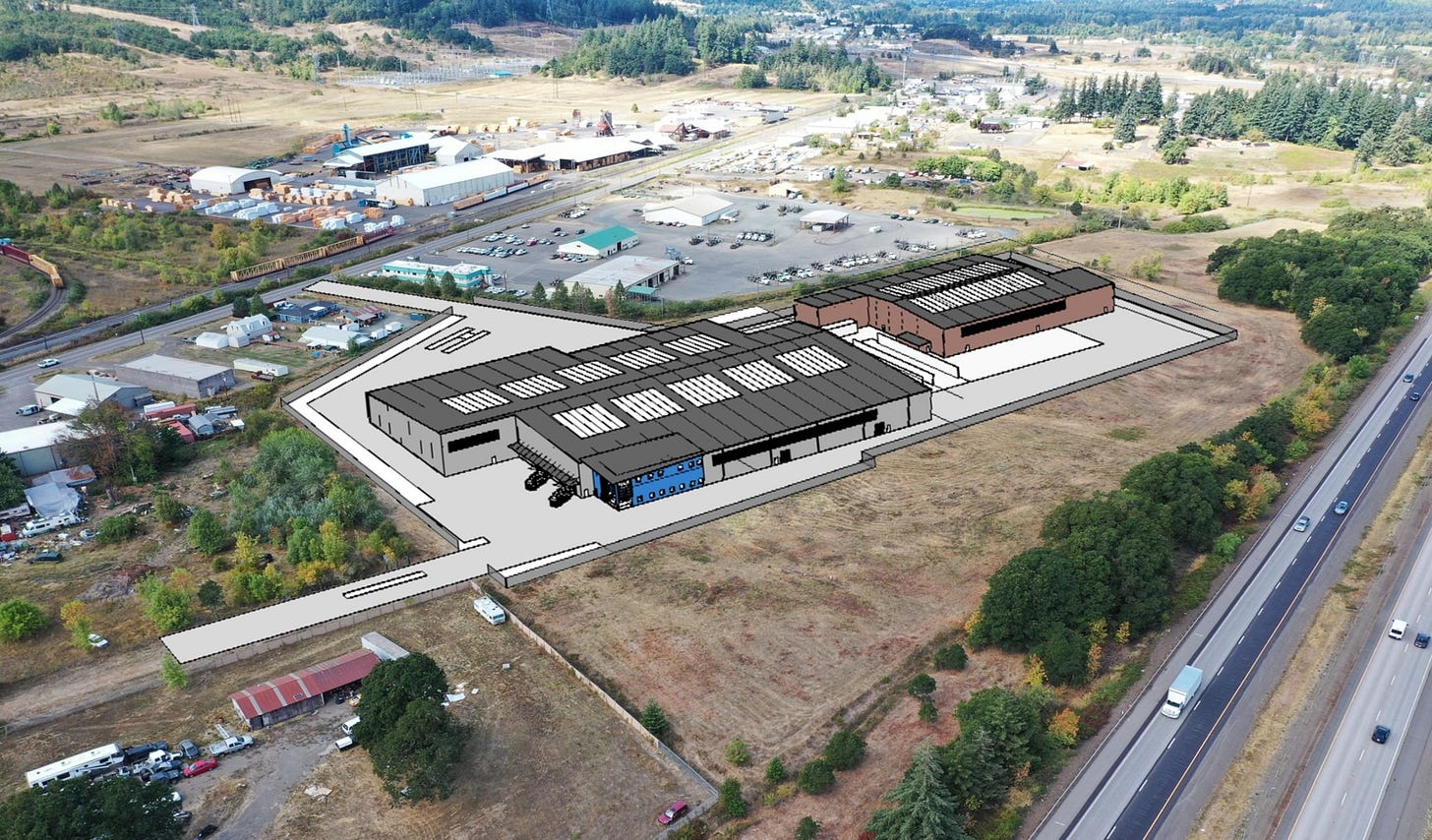Dems fast track land use exception for solid waste facility
A Lane County hearings officer denied county's application to construct $150 million solid waste sorting and educational facility in zone that prohibits solid waste uses
Democratic legislators representing Lane County are pushing a last-minute bill to require the county to approve a controversial $150 million solid waste sorting, storage, composting and educational facility in a land use zone that prohibits solid waste uses. The bill, HB 3971, would override Oregon’s land use laws and overturn an April 22 land use hearings officer decision that denied the application to construct the massive new facility on land in unincorporated Goshen, just south of Eugene.
Environmental groups that typically oppose efforts to streamline or make exceptions to Oregon’s land use laws strongly support the bill, which received a hearing today in the House Rules Committee, signaling it has the support of Democratic legislative leaders and is on a fast track to passage in the waning weeks of the legislative session.
What is “CleanLane?”
Lane County proposes the facility, which it calls “CleanLane,” on 26 acres near I-5 in Goshen, an unincorporated community just south of Eugene. The county and its private partner Bulk Handling Systems (BHS) would construct a 23,991 square foot composting building, a 6,994 square foot education center and storage tanks on the site.
Solid Waste would be hauled to CleanLane, where BHS would remove recyclables and organic material for decomposition into natural gas, before transporting the remaining waste to the county’s Short Mountain landfill.
The county would pay its share of the estimated $150 million facility via increases in tipping fees solid waste haulers are charged by the county, which will be passed along to residents and businesses in the form of higher garbage bills.
Lane County already has a recycling sorting facility, and one of the highest recycling rates in the state, but the county argues CleanLane will prevent 80,000 tons of solid waste from going into its landfill annually. Opponents including solid waste haulers dispute that projection as well as the need for the project.
It was solid waste before it was definitely not solid waste but now it’s solid waste again
The legal fight over CleanLane has played out against the backdrop of Oregon’s restrictive land use laws. The site is located in a zone that prohibits solid waste uses. Lane County originally applied for a zone change to fit the zone to the solid waste use. It later changed its approach, seeking instead a special use permit in the existing zone to allow the use the county suddenly insisted was not a solid waste use.
Lane County’s planning director, employed by the county commissioners, the majority of whom support CleanLane, approved the permit. Opponents appealed, and Lane County land use hearings officer and attorney Joe Turner, following a hearing and review of the evidence, denied the permit April 22, 2025. Turner concluded CleanLane was indeed a solid waste use that was forbidden in the zone in which the county wants to site it.
Legislators pounce
On May 8, Senator Floyd Prozanski (D) and Representative Lisa Fragala (D), both of whom represent portions of Lane County, introduced HB 3971, which would require Lane County to approve Lane County’s CleanLane application “notwithstanding” state and local land use laws. The bill would also exempt the required approval from appeal to the Land Use Board of Appeals.
Today’s Rules Committee hearing featured the support of a wide swath of environmental groups that are normally very protective of Oregon’s land use laws.
The Oregon Chapter of the Sierra Club supported the end run around land use laws because, it says, CleanLane “will have a truly climate-friendly solution that treats waste as a resource[.]” The Club opposed a bill in the 2024 session that “allowed cities to use a one-time expand urban growth boundaries” to build affordable housing, according to its website.
Robert Emmons, the president of LandWatch Lane County testified in support of the bill. LandWatch Lane County commonly opposes development that it says are prohibited by Oregon land use laws, according to its website.
Opponents of CleanLane who testified at the hearing objected to making an exception to land use laws to site a facility that will increase their cost of living in Lane County.
Bulk Handling Systems
CleanLane would be partially constructed and operated by Eugene-based Bulk Handling Systems subject to a 91-page contract between a Bulk Handling Systems affiliate, BHS Projects@Lane County, LLC, and Lane County. The contract obligates Lane County to pay BHS a penalty of $12,000 per day if the county fails to complete construction of the facility by its December 2025 building construction deadline, presumably adding to the urgency of CleanLane supporters.
BHS is managed by Steve Miller, who made a relatively small ($1,000) contribution to Tina Kotek’s governor campaign in 2022, and another $1,000 to the campaign of an unsuccessful challenger to Lane County Commissioner Ryan Ceniga, one of two commissioners to vote constistently against CleanLane on the five-member body.
What’s next?
Likely, the Rules Committee will schedule a work session on HB 3971, during which it will consider amendments (one of which would require Lane County Commissioners to hold a hearing on the CleanLane application they would be required to approve) and vote on the bill. If the House and Senate approve the bill, and Kotek signs it, CleanLane will have avoided the need to comply with Oregon and Lane County land use laws.





This story demonstrates that Oregon's SB100, zoning laws and LUBA are not add-ons to the Ten Commandments but merely manmade rules which can be changed by a vote of the legislature and a signature of the governor.
Oregon Supermajority tenet: "Laws for thee, but not for me"